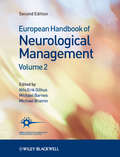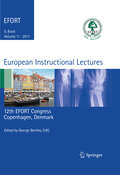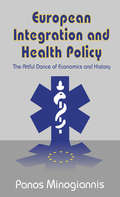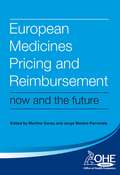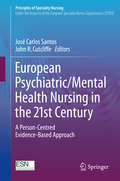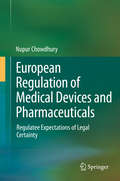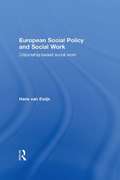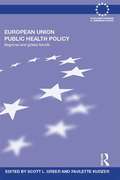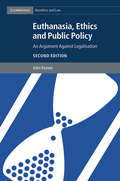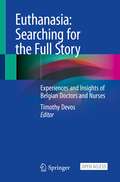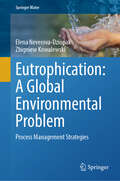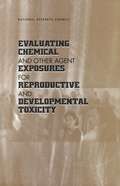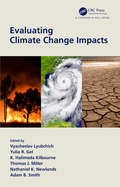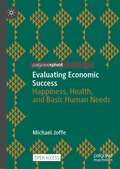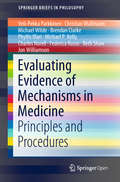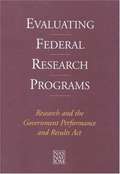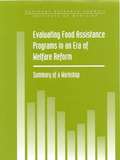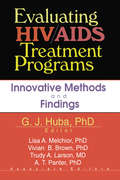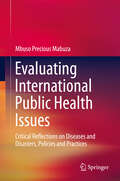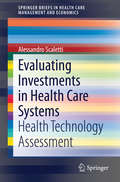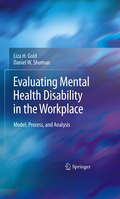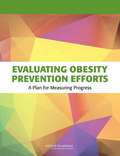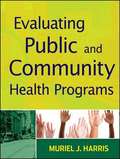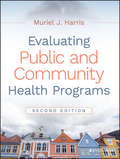- Table View
- List View
European Handbook of Neurological Management
by Michael Brainin Michael R. Barnes Nils Erik GilhusEvidence-based, peer reviewed, best practice management guidelines for neurologists Diagnosis is only part of the puzzle. Effective treatment is what your patients really want. The European Federation of Neurological Societies has been publishing management guidelines in the European Journal of Neurology for many years. Developed by a consensus approach, using graded evidence, and then fully peer reviewed, these guidelines provide gold-standard, best-practice guidance to the treatment of neurological disorders. They help bridge the gap between what is done and what should be done for patients with neurological disorders. The basic guidelines have been expanded with 'Recommendations' based on strong evidence and 'Good Practice Points' where only weaker evidence is available. The Guidelines in this volume include, amongst others: Neurostimulation therapy for neuropathic pain Molecular diagnosis for a range of neurological conditions Intravenous immunoglobulin in the treatment of neurological diseases Sleep disorders in neurodegenerative disorders and stroke Management of low-grade gliomas Treatment of miscellaneous idiopathic headache disorders The European Handbook of Neurological Management provides a thoroughly rounded and grounded approach to best-practice neurological management using evidence-based principles. Titles of related interest Cerebrovascular Ultrasound in Stroke Prevention, 2e Alexandrov (ed); ISBN 9781405195768 Parkinsons's Disease: Non-Motor and Non-Dopaminergic Features Olanow, Stocchi and Lang (eds); ISBN 9781405191852 Hyperkinetic Movement Disorders: Differential Diagnosis and Treatment Albanese and Jankovic (eds); ISBN 9781444333527
European Instructional Lectures
by George BentleyThis tenth volume in the EUROPEAN INSTRUCTIONAL LECTURES series continues the format of educational chapters from across Orthopaedics and Traumatology contributed by notable surgeons in Europe. It provides up-to-date material and major advances covering a range of topics including: General Orthopaedics, Musculo-Skeletal Tumours, Paediatric Orthopaedics, Trauma, Spine, Upper Limb, Hip, Knee, and Ankle and Foot. All the lectures were presented at the 11th EFORT Congress in Madrid, Spain. The lectures are an authoritative source of information illustrated by radiographs, MRI and CT Scans, operative photographs, tables and line drawings. They are a valuable source of instruction for Surgeons and Trainees alike.
European Integration and Health Policy: The Artful Dance of Economics and History
by Panos MinogiannisThe impact of European integration on diverse national social policies is still largely unknown. While policy decision making remains at the country level, there is a strong possibility that indirectly, as a result of ideological imperatives and financial constraints, policies will change. National health policy is a case in point. This important volume explores the current and probable effect of European integration on health care protection. Will it tend to encourage all European member states to provide equitable and universal access to quality care? Or is the European integration process likely to lead to social exclusion of some? The high degree of social welfare as a health expectancy holds great significance for decisions in countries like the United States facing similiar pressures for expanded coverage. In answering these questions, Panos Minogiannis examines policies in Greece, France, Germany, and the Netherlands. Minogiannis frames his argument through an exploration of the history of the institutionalization of health care. Chapter 1 explores the nature of challenges that health care faces in an era of integration and the ways in which these challenges have emerged. Chapter 2 discusses centralization of governance in Brussels, describing the structure and relations of different European Union institutions, and their interactions with member states. The final portions of the book, through case studies of the Dutch, French, German, and Greek health reforms, explore the history of the political development of health care institutions with a particular interest in reform proposals in the last fifteen years. Chapter 7 brings together lessons from previous chapters and discusses the dynamics of health policy making in the European Union. Minogiannis concludes that health insurance will most likely remain at the member state level as far as politics are concerned, at least for the present, although policy makers will most likely have to deal with the issue of cross-border health more comprehensively than in the past. Those interested in comparative policy, and in particular health care policy, will find this volume highly informative reading. Those interested in the impact of European integration will find it provocative. Panos Minogiannis is with the Mailman School of Public Health at Columbia University and is a research associate at the Eisenhower Center.
European Medicines Pricing and Reimbursement: Now and the Future
by Michael Loh Martina Garau Jorge Mestre-FerrandizThis book is published in association with the Office of Health Economics. This book is a vital, non-technical guide illuminating recent developments within the five major European pharmaceutical markets. It clearly explains pharmaceutical regulatory policies on pricing and reimbursement, and their effects. Each chapter gives an overview of the current market, including aims, effectiveness, local markets, frameworks and politics, and then offers predictions for the next decade. Pharmaceutical executives with interests in marketing, market access and pricing will find this guide invaluable, as will health economists, government advisors and public affairs consultants. Public policy makers in areas such as the Department of Health and The Treasury and senior health service managers in hospitals will find it enlightening. It is also highly relevant to policy shapers in academia and the media, and undergraduate and postgraduate students of health economics, health policy, pharmaceutical economics and healthcare management. "This book aims not only to understand and discuss the mix of regulatory measures introduced by national policy makers in order to achieve their goals, but also to ascertain how these policies have actually shaped and influenced the characteristics and functioning of national pharmaceutical markets. In particular, each author has provided an analysis of existing pricing and reimbursement arrangements operating in their own country and an outline of policy scenarios that might emerge in the next decade." - Martina Garau and Jorge Mestre-Ferrandiz, in the Introduction.
European Psychiatric/Mental Health Nursing in the 21st Century: A Person-Centred Evidence-Based Approach (Principles of Specialty Nursing)
by José Carlos Santos John R. CutcliffeThis groundbreaking book has a number of features that set it apart from other textbooks on this subject: Firstly, it focuses on interpersonal, humanistic and ecological views and approaches to P/MH nursing. Secondly, it highlights patient/client-centered approaches and mental-health-service user involvement. Lastly, it is a genuinely European P/MH nursing textbook - the first of its kind - largely written by mental health scholars from Europe, although it also includes contributions from North America and Australia/New Zealand. Focusing on clinical/practical issues, theory and empirical findings, it adopts an evidence-based or evidence-informed approach. Each contribution presents the state-of-the-art of P/MH nursing in Europe so that it can be transferred to and implemented by P/MH nurses and the broader mental health care community around the globe. As such, it will be the first genuinely 21st century European Psychiatric Mental Health Nursing book.
European Regulation of Medical Devices and Pharmaceuticals
by Nupur ChowdhuryOne of the primary functions of law is to ensure that the legal structure governing all social relations is predictable, coherent, consistent and applicable. Taken together, these characteristics of law are referred to as legal certainty. In traditional approaches to legal certainty, law is regarded as a hierarchical system of rules characterized by stability, clarity, uniformity, calculable enforcement, publicity and predictability. However, the current reality is that national legal systems no longer operate in isolation, but within a multilevel legal order, wherein norms created at both the international and regional level are directly applicable to national legal systems. Also, norm creation is no longer the exclusive prerogative of public officials of the state: private actors have an increasing influence on norm creation as well. Social scientists have referred to this phenomenon of interacting and overlapping competences as multilevel governance. Only recently have legal scholars focused attention on the increasing interconnectedness (and therefore the concomitant loss of primacy of national legal orders) between the global, European and national regulatory spheres through the concept of multilevel regulation. In this project the author uses multilevel regulation as a term to characterize a regulatory space in which the process of rule making, rule enforcement and rule adjudication (the regulatory lifecycle) is dispersed across more than one administrative or territorial level and amongst several different actors, both public and private. The author draws on the concept of a regulatory space, using it as a framing device to differentiate between specific aspects of policy fields. The relationship between actors in such a space is non-hierarchical and they may be independent of each other. The lack of central ordering of the regulatory lifecycle within this regulatory space is the most important feature of such a space. The implications of multilevel regulation for the notion of legal certainty have attracted limited attention from scholars and the demand for legal certainty in regulatory practice is still a puzzle. The book explores the idea of legal certainty in terms of the perceptions and expectations of regulatees in the context of medical products - specifically, pharmaceuticals and medical devices, which can be differentiated as two regulatory spaces and therefore form two case studies. As an exploratory project, the book necessarily explores new territory in terms of investigating legal certainty first in terms of regulatee perceptions and expectations and second, because it studies it in the context of multilevel regulation.
European Social Policy and Social Work: Citizenship-Based Social Work
by Hans van EwijkEuropean Social Policy and Social Work explores shifts in international social policies and how they affect national trends and thus the context for social work practice. The book discusses international and national social work strategies and practice and investigates the responsibilities for social welfare held by the state, the market and civil society. Hans van Ewijk then elaborates a new concept of citizenship-based social work which supports and encourages self-responsibility, social responsibility and the implementation of social rights. The main themes covered are: international social policy and social work from welfare to workfare citizenship essentials of citizenship based social work community policy and community work social work and alternative areas of activity such as youth care and social care. Integrating different roots and social professions in an overarching new concept, this book particularly looks at European Union countries. Hans van Ewijk examines debates regarding social work as an internationally recognised profession and science. This book is suitable for social work students, academics and professionals with an interest in social policy and international social work.
European Union Health Law (Law in Context)
by Tamara K. Hervey Jean V. McHaleA contextual analysis of the internal logics of EU health law through four themes: consumerism; (human) rights; interactions between equality, solidarity and competition; and risk. Leading authors in the emergent field explain the interactions and implications of EU health law through thematic reinterpretation of the law in context in key substantive areas, such as the regulation of health research, access of patients to high quality care, health care professional regulation, organisation and funding of health care services, and public health. This book offers a fresh perspective and thorough understanding of EU health law through individual and collective or systemic perspectives, and covers health law both within the EU and globally. Essential reading for anyone interested in health law in any EU Member State or in global health law. First major study to conceptualise EU health law through its own terms, rather than those of health law or EU law. Structured around four themes which provide analytical focus and understanding of 'what is the law?' whilst considering the implications in various contexts. Easy to navigate quick reference guide which provides brief answers to the authors' 40 questions posed in the introduction.
European Union Public Health Policy: Regional and global trends (Routledge Advances in European Politics)
by Scott L. Greer Paulette KurzerRanging from influence over world trade laws affecting health to population health issues such as obesity to the use of comparative data to affect policy, the EU’s public health policies are increasingly important, visible, expensive and effective. They also provide an invaluable case study for those who want to understand the growth and impact of the EU as well as how states can affect their populations’ lives and health. European Union Public Health Policy capitalizes on extensive new research, providing an introduction to the topic and indicating new intellectual directions surrounding the topic. An introductory section and extended conclusion explore the meaning of public health, the relationship of EU public health policy to health care policy, and the place of public health in the study of European integration and Europeanization. Focusing on health system transformation, global health governance and population health, the chapters address: Relevant policy issues and EU policies; Effects of the EU policies on practice or outcomes; An explanation of the policy trajectory; Current issues and likely future directions or conflicts. Drawing together an international and multidisciplinary selection of experts, this volume is an important contribution for all those interested in public health policy, EU health policy and EU governance.
Euthanasia, Ethics and Public Policy: An Argument against Legalisation (Cambridge Bioethics and Law)
by John KeownThis book argues against the legalisation of voluntary euthanasia and/or physician-assisted suicide on the ground that, even if they were ethically defensible in certain 'hard cases', neither could be effectively controlled by law. It maintains that the experience of legalisation in the Netherlands, Belgium and Oregon lends support to the two 'slippery slope' arguments against legalisation, the 'empirical' and the 'logical'. The empirical argument challenges the feasibility of drafting and enforcing adequate safeguards against abuse and mistake; the logical argument shows that acceptance of the case for euthanasia in the case of suffering patients who request it logically involves acceptance of euthanasia for suffering patients who are unable to request it, such as infants and those with advanced dementia.
Euthanasia: Experiences and Insights of Belgian Doctors and Nurses
by Timothy DevosThis open access book has been written by ten Belgian health care professionals, nurses, university professors and doctors specializing in palliative care and ethicists who, together, raise questions concerning the practice of euthanasia. They share their experiences and reflections born out of their confrontation with requests for euthanasia and end-of-life support in a country where euthanasia has been decriminalized since 2002 and is now becoming a trivial topic.Far from evoking any militancy, these stories of life and death present the other side of a reality needs to be evaluated more rigorously.Featuring multidisciplinary perspectives, this though-provoking and original book is intended not only for caregivers but also for anyone who questions the meaning of death and suffering, as well as the impact of a law passed in 2002. Presenting real-world cases and experiences, it highlights the complexity of situations and the consequences of the euthanasia law.This book appeals to palliative care providers, hematologists, oncologists, psychiatrists, nurses and health professionals as well as researchers, academics, policy-makers, and social scientists working in health care. It is also a unique resource for those in countries where the decriminalization of euthanasia is being considered. Sometimes shocking, it focuses on facts and lived experiences to challenge readers and offer insights into euthanasia in Belgium.
Eutrophication: Process Management Strategies (Springer Water)
by Elena Neverova-Dziopak Zbigniew KowalewskiThis book critically analyzes the reasons for the lack of tangible success in preventing progressing eutrophication and its negative effects as a global environmental problem without a clear solution until now. Particular attention of the authors will be paid to the currently existing approaches to setting the ecological standards for the nutrients content in surface waters and wastewater, the appropriate selection of wastewater treatment technology, the issues of monitoring and trophic status assessment, and the approach to managing this process. Also, the book provides a proposed systemic approach to managing the eutrophication process to mitigate its dangerous ecological, economic, and social effects and to preserve the biospheric functions of aquatic ecosystems.The target audience for this book - a wide range of specialists in water management and protection, water-and-wastewater technologies, and spatial planning, as well as lawyers and economists for environmental protection, medical workers, upper undergraduate students, postgraduate students, researchers and stakeholders.
Evaluating Chemical And Other Agent Exposures For Reproductive And Developmental Toxicity
by National Research CouncilA report on Evaluating Chemical And Other Agent Exposures For Reproductive And Developmental Toxicity
Evaluating Climate Change Impacts (Chapman And Hall/crc Applied Environmental Statistics Ser.)
by Vyacheslav Lyubchich, Yulia R. Gel, K. Halimeda Kilbourne, Thomas J. Miller, Nathaniel K. Newlands and Adam B. SmithEvaluating Climate Change Impacts discusses assessing and quantifying climate change and its impacts from a multi-faceted perspective of ecosystem, social, and infrastructure resilience, given through a lens of statistics and data science. It provides a multi-disciplinary view on the implications of climate variability and shows how the new data science paradigm can help us to mitigate climate-induced risk and to enhance climate adaptation strategies. This book consists of chapters solicited from leading topical experts and presents their perspectives on climate change effects in two general areas: natural ecosystems and socio-economic impacts. The chapters unveil topics of atmospheric circulation, climate modeling, and long-term prediction; approach the problems of increasing frequency of extreme events, sea level rise, and forest fires, as well as economic losses, analysis of climate impacts for insurance, agriculture, fisheries, and electric and transport infrastructures. The reader will be exposed to the current research using a variety of methods from physical modeling, statistics, and machine learning, including the global circulation models (GCM) and ocean models, statistical generalized additive models (GAM) and generalized linear models (GLM), state space and graphical models, causality networks, Bayesian ensembles, a variety of index methods and statistical tests, and machine learning methods. The reader will learn about data from various sources, including GCM and ocean model outputs, satellite observations, and data collected by different agencies and research units. Many of the chapters provide references to open source software R and Python code that are available for implementing the methods.
Evaluating Economic Success: Happiness, Health, and Basic Human Needs (Wellbeing in Politics and Policy)
by Michael JoffeThis open access book argues that a new policy approach is required in order to tackle the numerous problems the world is currently facing. The priority should be on achieving better outcomes for people, especially those facing deprivation or precariousness, by meeting their basic needs. In order to achieve this, the book develops a monitoring system that can act as an objective, an incentive, and a criterion of success for policy makers at all levels of government and in civil society, as well as providing information to guide specific actions. In doing so, the book aims to promote good health and positive social functioning by providing a new approach to help assess how well basic human needs are being met. This involves monitoring the outcomes of the economy that ought to satisfy these needs. It will appeal to all those interested in public policy, official statistics and monitoring, public health and wellbeing, as well as practitioners.
Evaluating Evidence of Mechanisms in Medicine: Principles and Procedures (SpringerBriefs in Philosophy)
by Beth Shaw Phyllis Illari Veli-Pekka Parkkinen Christian Wallmann Michael Wilde Brendan Clarke Michael P Kelly Charles Norell Federica Russo Jon WilliamsonThis book is open access under a CC BY license. This book is the first to develop explicit methods for evaluating evidence of mechanisms in the field of medicine. It explains why it can be important to make this evidence explicit, and describes how to take such evidence into account in the evidence appraisal process. In addition, it develops procedures for seeking evidence of mechanisms, for evaluating evidence of mechanisms, and for combining this evaluation with evidence of association in order to yield an overall assessment of effectiveness. Evidence-based medicine seeks to achieve improved health outcomes by making evidence explicit and by developing explicit methods for evaluating it. To date, evidence-based medicine has largely focused on evidence of association produced by clinical studies. As such, it has tended to overlook evidence of pathophysiological mechanisms and evidence of the mechanisms of action of interventions. The book offers a useful guide for all those whose work involves evaluating evidence in the health sciences, including those who need to determine the effectiveness of health interventions and those who need to ascertain the effects of environmental exposures.
Evaluating Federal Research Programs: Research and the Government Performance and Results Act
by National Research CouncilThe Government Performance and Results Act (GPRA), passed by Congress in 1993, requires that federal agencies write five-year strategic plans with annual performance goals and produce an annual report that demonstrates whether the goals have been met. The first performance reports are due in March 2000.Measuring the performance of basic research is particularly challenging because major breakthroughs can be unpredictable and difficult to assess in the short term. This book recommends that federal agencies use an "expert review" method to examine the quality of research they support, the relevance of that research to their mission, and whether the research is at the international forefront of scientific and technological knowledge. It also addresses the issues of matching evaluation measurements to the character of the research performed, improving coordination among agencies when research is in the same field, and including a human resource development component in GPRA strategic and performance plans.
Evaluating Food Assistance Programs in an Era of Welfare Reform: Summary of a Workshop
by Committee on National StatisticsSummary of a public policy workshop in 1999 sponsored by the Commission on Behavioral and Social Sciences and Education (CBASSE)
Evaluating HIV/AIDS Treatment Programs: Innovative Methods and Findings
by George J Huba Lisa A Melchior Vivian Brown A.T. Panter Trudy A Larson Pauline FitzpatrickCreate effective community-based programs for substance abusers with HIV/AIDS!Substance abusers are the fastest-growing population of people with HIV/AIDS in the US--and one of the hardest to reach and treat. Evaluating HIV/AIDS Treatment Programs offers new strategies for providing care for this vulnerable population. The programs evaluated and discussed in this volume were funded as part of the DHHS Health Resources and Services Administration through its Special Projects of National Significance Program. Collectively known as the SPNS Cooperative Agreement, these 27 projects represent a diverse group of organizations with a common goal: to improve the health, quality of life, and access to health care for traditionally underserved populations living with HIV/AIDS.Evaluating HIV/AIDS Treatment Programs reports in detail the efforts of several community-based HIV/AIDS organizations in the SPNS program. You will learn how these organizations provide high-quality care for persons with HIV who are unlikely to obtain it in the traditional hospital-based service system. This volume offers specific, proven strategies designed to overcome the linguistic, cultural, racial, and economic barriers that make it difficult for some sick people to get the health care they need. It also offers specialized medical care models that work within the context of a continuum of services in a medical clinic.Evaluating HIV/AIDS Treatment Programs also highlights other aspects of the Cooperative Agreement projects, including: a study of end-stage AIDS care an overview of the HRSA HIV/AIDS Bureau SPNS Cooperative Agreement grant initiative a study of conceptual issues in implementing program evaluation in real-world community organizations discussion of the online Knowledge Base that summarizes and disseminates information from the Cooperative Agreement projects studies of ways to reach and care for specific populations with HIV/AIDS, including women, Latinos, Haitians, adolescents, and rural peopleThis valuable volume offers solid data on treating people who are all too often neglected by the medical community even before they contract HIV/AIDS. The programs and ideas presented in Evaluating HIV/AIDS Treatment Programs can be applied to other community-based health initiatives and clinics offering medical care to underserved and vulnerable populations. This essential resource deserves a permanent place on their bookshelf of any physician, administrator, or policymaker working in the fields of HIBV/AIDS, epidemiology, public health, or substance abuse. Visit the book's website at http://www.TheMeasurementGroup.com/drugs_and_society.htm
Evaluating International Public Health Issues: Critical Reflections on Diseases and Disasters, Policies and Practices
by Mbuso Precious MabuzaThis book makes an original contribution in addressing contemporary critical discussions and reflections on international health policies, strategies, programmes, systems, diseases, disasters, and public health issues. It includes reflections on how levels of governance, development and technical assistance affect countries’ disaster readiness and health systems. In addressing inequalities between the rich and the poor, and unpacking how this affects public health services, policies, strategies and their collective implementation, the book aspires to improve standards of public health and quality of life for sustainable development globally. It provides a comprehensive overview of international health policies and aid structures, and pays particularly close attention to policies on HIV/AIDS in the workplace, discussing how HIV/AIDS has overshadowed non-communicable diseases (NCDs) such as hypertension and stroke, which are on the rise. This book will be of great benefit to students and researchers, as well as policymakers in governmental and non-governmental organisations, who have an interest in achieving greater sustainability and improved health for populations in low-, middle- and high-income countries. It will be an indispensable book for students in Public Health programmes, and related courses.
Evaluating Investments in Health Care Systems
by Alessandro ScalettiThis book focuses on the innovative and more critical management approach adopted in the PA (Public Administration) in order to identify and describe the main models and instruments to economically evaluate the decision making process in accordance to the specific conditions such as efficiency, effectiveness, cost and equity. The manuscript pays special attention to this sector by identifying, investigating and applying the main evaluation models (logic and methods) of the decision making process, in particular in terms of investment decisions. In the recent decades, with reference to PA, several managerial approaches have been developed from a business management perspective. These managerial approaches differ in terms of variables analyzed, such as the role of governance or the specific logics and mechanisms applied, but all of them have a common goal, which is the improvement of efficiency, effectiveness, economic and equitable decision making and operations in the PA. This book investigates the different mentioned frameworks adopting a wider and integrated analysis perspective on the evaluation of investments in the health care system.
Evaluating Mental Health Disability in the Workplace
by Liza H. Gold Daniel W. ShumanAs many as one in four adults in the workforce will suffer from psychiatric illness in a given year. Such illness can have serious consequences -- job loss, lawsuits, workplace violence--yet the effects of mental health issues on job functioning are rarely covered in clinical training. In addition, clinicians are often asked to provide opinions on an employee's fitness for work or an evaluation for disability benefits, only to find themselves embroiled in complex legal and administrative conflicts. A unique collaboration between a renowned clinical professor of psychiatry and a noted legal expert, Evaluating Mental Health Disability in the Workplace approaches the topic from two distinct areas: the legal context and issues relevant to disability and disability-related evaluations, and the interplay of factors in the relationship between work and psychiatric illness. From this dual perspective, the authors advocate for higher professional standards ensuring that employers, evaluees, or third parties are provided with the most reliable information. Key features of the book: A robust assessment model of psychological disability in the workplace Practice guidelines for conducting workplace mental health disability evaluations Legal and ethical aspects of employment evaluations, especially as they differ from clinical procedure Examination of the process of psychiatric disability development Issues specific to evaluations for Social Security, Workers' Compensation, and other disability benefit programs Review of relevant administrative and case law. As an introduction to these complex issues or for the further improvement of evaluation skills, Evaluating Mental Health Disability in the Workplace is a timely reference for psychiatrists, psychologists, forensic mental health specialists, and attorneys in this field.
Evaluating Obesity Prevention Efforts
by Institute of Medicine Food and Nutrition Board Committee on Evaluating Progress of Obesity Prevention EffortObesity poses one of the greatest public health challenges of the 21st century, creating serious health, economic, and social consequences for individuals and society. Despite acceleration in efforts to characterize, comprehend, and act on this problem, including implementation of preventive interventions, further understanding is needed on the progress and effectiveness of these interventions. Evaluating Obesity Prevention Efforts develops a concise and actionable plan for measuring the nation's progress in obesity prevention efforts--specifically, the success of policy and environmental strategies recommended in the 2012 IOM report Accelerating Progress in Obesity Prevention: Solving the Weight of the Nation. This book offers a framework that will provide guidance for systematic and routine planning, implementation, and evaluation of the advancement of obesity prevention efforts. This framework is for specific use with the goals and strategies from the 2012 report and can be used to assess the progress made in every community and throughout the country, with the ultimate goal of reducing the obesity epidemic. It offers potentially valuable guidance in improving the quality and effect of the actions being implemented. The recommendations of Evaluating Obesity Prevention Efforts focus on efforts to increase the likelihood that actions taken to prevent obesity will be evaluated, that their progress in accelerating the prevention of obesity will be monitored, and that the most promising practices will be widely disseminated.
Evaluating Public and Community Health Programs
by Harris Muriel J.Evaluating Public and Community Health Programs Evaluating Public and Community Health Programs combines an introduction to public and community health program evaluation with a detailed survey of methods in community assessment, planning, program design, quantitative and qualitative data collection, data analysis, and reporting of findings. The book presents an approach built on the two primary evaluation frameworks that are most common in public and community health: the Donaldson three-step program theory-driven evaluation model and CDC's six-step Framework for Program Evaluation in Public Health. The author emphasizes practical, ongoing evaluation strategies that involve all program stakeholders, not just evaluation experts, and presents a simple and effective standards-based four-step model that will produce rich and useful results. The book's resources (scenarios, worksheets, and guidelines) can be used throughout the planning, implementation, and evaluation process. In addition, each chapter includes a list of learning objectives, key terms, and ideas for review, as well as summaries and discussion questions that can reinforce each chapter's lessons.
Evaluating Public and Community Health Programs
by Muriel J. HarrisA practical introduction to participatory program evaluation Evaluating Public and Community Health Programs provides a comprehensive introduction to the theory and practice of evaluation, with a participatory model that brings stakeholders together for the good of the program. Linking community assessment, program implementation, and program evaluation, this book emphasizes practical, ongoing evaluation strategies that connect theory with application. This updated second edition includes new discussion on planning policy change programs using logic models and theory of change, plus expanded coverage of processes, outcomes, data collection, and more. Each chapter includes classroom activities and group discussion prompts, and the companion website provides worksheets, lecture slides, and a test bank for instructors. Mini cases help illustrate the real-world applications of the methods described, and expanded case studies allow students to dig deeper into practice and apply what they've learned. Accurate and effective evaluation is the key to a successful program. This book provides a thorough introduction to all aspects of this critical function, with a wealth of opportunities to apply new concepts. Learn evaluation strategies that involve all program stakeholders Link theory to practice with new mini cases and examples Understand the uses, processes, and approaches to evaluation Discover how ongoing evaluation increases program effectiveness Public and community health programs are a vital part of our social infrastructure, and the more effective they are, the more people they can serve. Proper planning is important, but continued evaluation is what keeps a program on track for the long term. Evaluating Public and Community Health Programs provides clear instruction and insightful discussion on the many facets of evaluation, with a central focus on real-world service.
